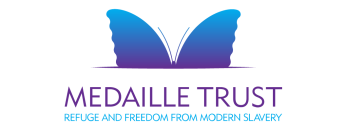No. 8 in a series of articles reporting on the responses of Caritas member organisations to the Covid-19 pandemic.
David Morris, chief executive of NOAH Enterprise based in Luton, Bedfordshire,, has described seeing many new faces sleeping rough, people whose livelihoods have been wrecked and people from migrant communities. He said: “Although our street outreach teams initially saw a sharp decrease in rough sleeping, we are now seeing more and more people on the streets, and with many support agencies closed, there are limited options to help. It is remarkable that there has not been a serious outbreak of coronavirus yet among rough sleepers and this is a testament to the work that many socially minded people have put in, but there is also a degree of good fortune.”
NOAH has worked with other agencies to get rough sleepers into emergency hotel accommodation, and to provide three meals per day for them. “The next stage is to help people move on from the hotels into more sustainable accommodation, while the hotel capacity gradually winds down in the coming month,” he said.
Members of the Caritas network in England and Wales have expressed concern that there will be pressure to move rough sleepers out of hotels before it has been possible to secure suitable long-term housing for them.
Ollie Wilson of Depaul UK said they are running two hotels providing safe accommodation for nearly 200 rough sleepers – one in in London and the second in Manchester. The hotels are being provided free to guests who receive three meals a day, 24-hour staff provision, and a weekly laundry. The hotel rooms have been commissioned by the Greater London Authority and the Greater Manchester Combined Authority, with the support of the Ministry for Housing, Communities and Local Government (MHCLG). They were block-booked for 13 weeks initially. “Depaul UK is committed to delivering this service for as long as necessary, and help fund long-term accommodation solutions for the guests,” said Mr Wilson.
Caritas Anchor House is working with the London Borough of Newham, which has the highest levels of homelessness in the country, to ensure readiness to move on some of the 140 residents at Caritas Anchor House after lockdown. Amanda Dubarry, Chief Executive, said, “As we come out of lockdown, it will be a very challenging time. There will be real pressure on the private rented sector, local authority accommodation and housing association lets, as hotels and organisations, including Caritas Anchor House, work to support people to move on”.
Father Hudson’s Care accepted Birmingham City Council’s invitation to take the lead in managing their provision in a hotel in Birmingham for homeless people. Chief Executive Andy Quinn said, “Some of the Council’s staff worked alongside ours, and the hotel staff have been very welcoming to the guests and have received the same quality of service that anyone who would usually be staying there as a paying guest would receive.”
The Council has made available properties, direct access to staff involved in universal credit benefits, and many other important links in order to ensure that the guests are using this time to plan their future, with the help of staff from Father Hudson’s Care. “More than 52 people have been helped during this time and at the moment we feel confident that at least 30 of these will have accommodation by the time the hotel is no longer available, which we anticipate being early June,” Andy Quinn said.
Mark Wiggin, director of Caritas Salford, said that there are around 800 rough sleepers and those vulnerable to becoming homeless in hotels: “It will be very challenging to re-accommodate this number without the continued strategy of using hotels until alternative suitable accommodation can be found.”
He described supporting such a large number vulnerable people in such a short time as “a triumph of concerted, collaborative and determined urgent action to address the scandal of homelessness. There are important lessons for us all to learn. One is that where there is the political will to act with urgency to address a social problem such as the health and welfare of homeless people together, we can succeed.”
Caritas Salford is providing 350 meals per week to the Cornerstone drop-in to homeless and destitute people and food parcel distribution to homeless projects and foodbanks is increasing.
This post is adapted from an article by Ellen Teague, first published in ‘The Tablet’ in association with CSAN.



